Lush Ziro Valley, nestled in the gentle hills of Arunachal Pradesh, reverberated with music again after three years this September. Popular since its start in 2012, the Ziro Festival of Music made a grand comeback from the Covid-19 hiatus of 2020 and 2021 as it hosted nearly 10,000 people from September 29 to October 2.
The footfall was an improvement on the pre-Covid figure of 8,000 in 2019. The fact that the festival managed to pull in the crowds even as its venue is located in the eastern-most state of India, and 123km from the nearest civilian airport, painted a bigger picture — music festivals are back, and they are drawing more people than ever before.
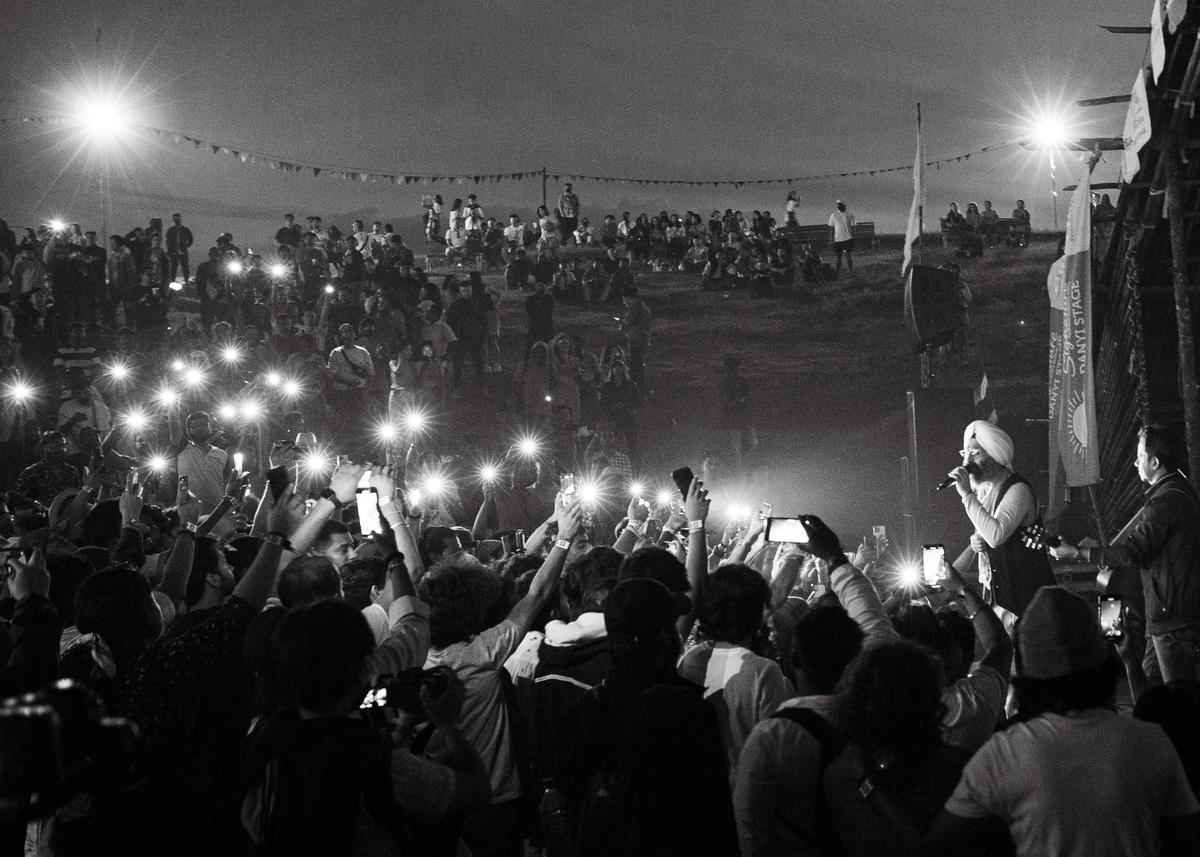
Rabbi Shergill at Ziro Music Festival; Photo: Mohit Sharma
The Lollapalooza franchise of music festivals, which originated in Chicago and now takes place in Berlin, São Paulo, Buenos Aires, Stockholm and Paris, will be entering India with a multi-genre show at Mumbai’s Mahalakshmi Race Course on January 28 and 29. The line-up promises acts like Imagine Dragons, Diplo, The Strokes, AP Dhillon, Divine and Prateek Kuhad to name a few. “The inaugural Lollapalooza India will be open to over 60,000 fans across both days,” says Ashish Hemrajani, the founder and CEO of BookMyShow, one of the promoters.
Tickets for the event, which will have four stages, range from ₹8,900 to ₹64,999. For Hemrajani, the event will be the first step towards putting India on the global map of live entertainment and offering an equal, global opportunity to Indian artists. “Over the past three decades, Lollapalooza has chosen its destinations based on market readiness, audience interest; today, India is truly ready for a global music festival of this legacy and scale,” he says.
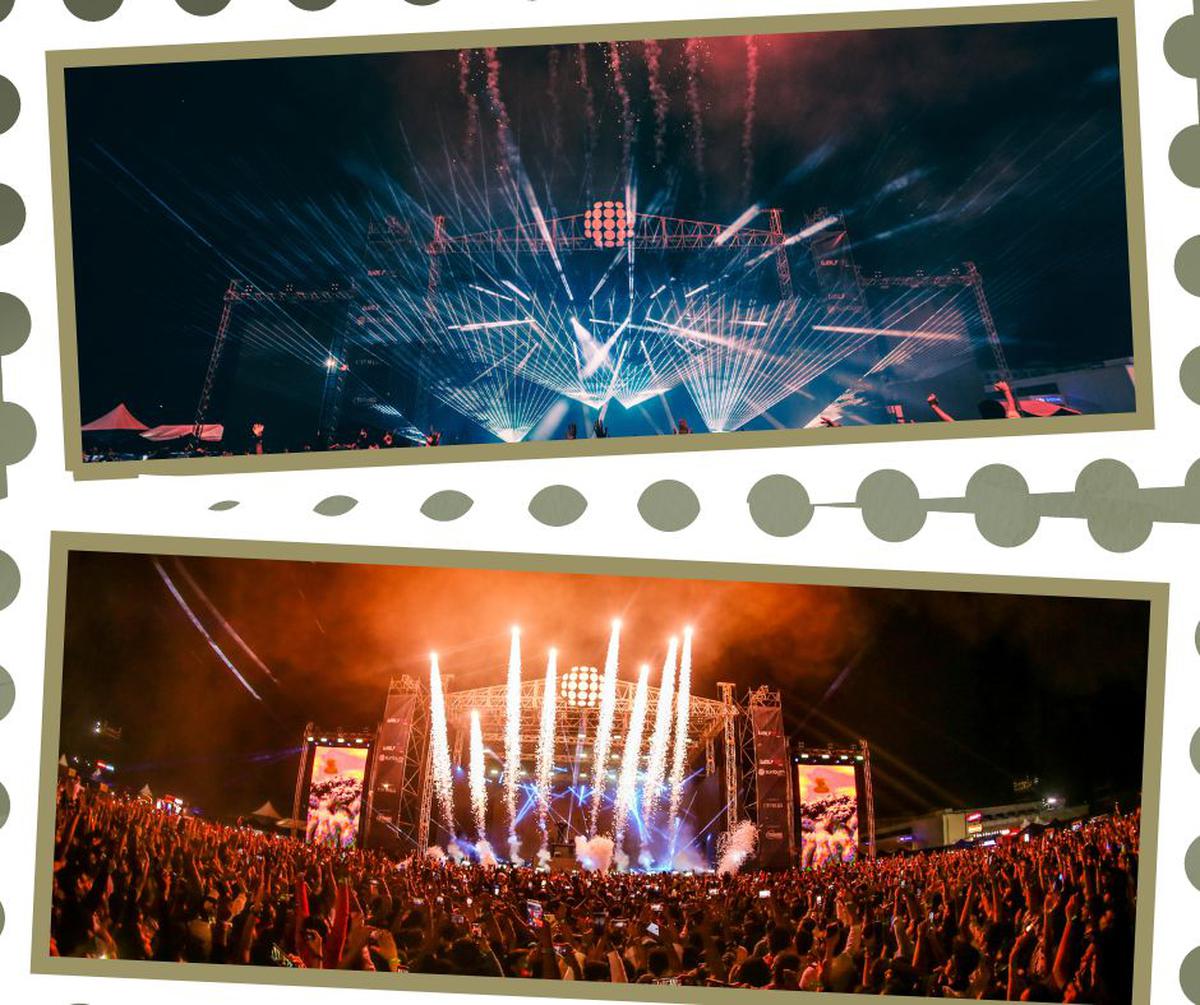
Sunburn Goa
While the limited early-bird ticket inventory for Lollapalooza was sold out in less than 36 hours, the organisers of Sunburn — a Percept Intellectual Property, positioned as ‘Asia’s Premiere Electronic Dance Music (EDM) Festival’ — say they are confident of re-establishing the annual event in Goa as Asia’s largest music festival. Sunburn was organised on a smaller scale in December last year, but the full-fledged festival, to be hosted from December 28 to 30, is returning after three years. “We do not reveal exact ticket sale numbers. The tickets for the festival start from ₹6,000 for a season pass and ₹3,000 per day,” says Karan Singh, who manages the festival with a 15-member team, in an emailed interview.
When tickets sell out
The promise of this year bringing back music festivals finds weight in the response to Magnetic Fields 2022, a contemporary arts and music festival to be hosted in the semi-desert environs of Rajasthan’s 17th-century fort Alsisar Mahal from December 9 to 11.
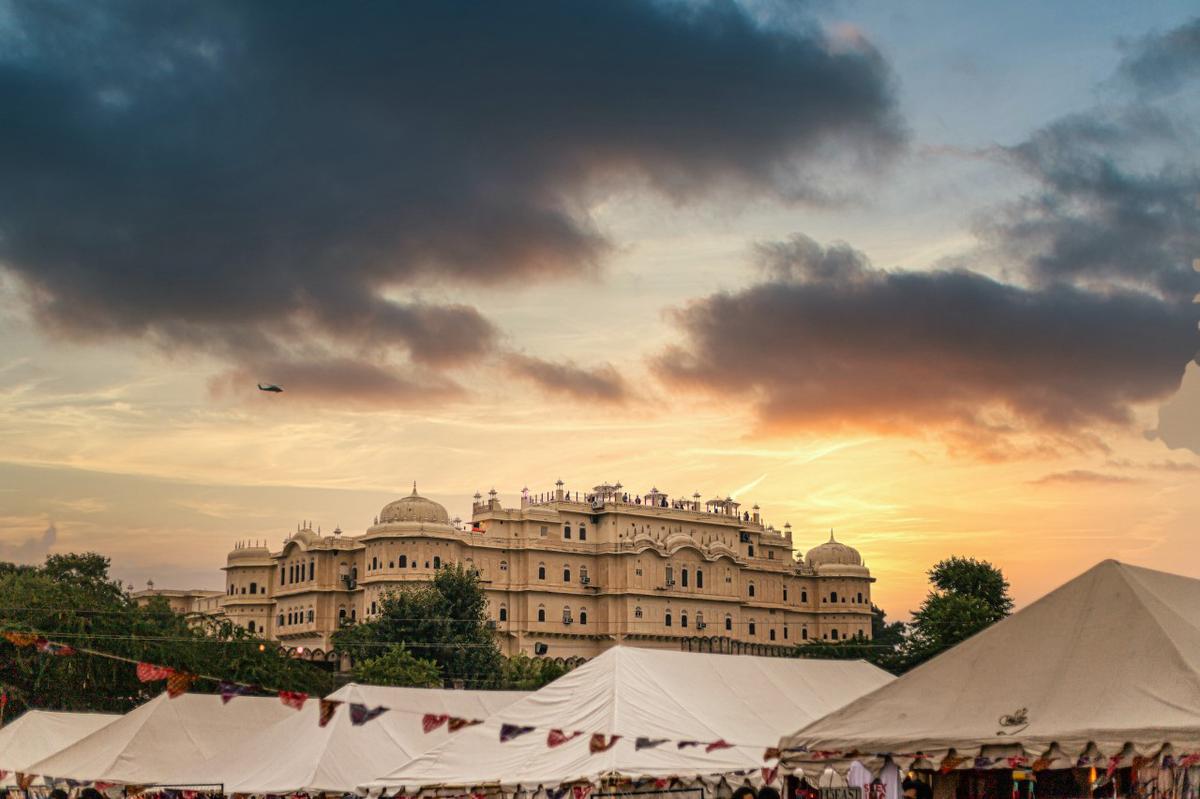
Alsisar Mahal as seen from the Bedouin Village; Photo by Parikshit Deshpande
All 4,000 tickets for the eighth edition of the festival, which is returning after a Covid-19 hiatus too, have been sold, according to the organiser’s website. Tickets started at ₹12,500 and went up to ₹1.1 lakh.
A long line-up of artists has already been released but more names are expected. This includes Elsewhere in India, a live transmedia performance that combines game engine technology with art, and Carnatic-electronic music. Munbir Chawla, content and partnerships director for Magnetic Fields, whose venue is a fort in Jhunjhunu district, says they are in the process of finalising collaborations.
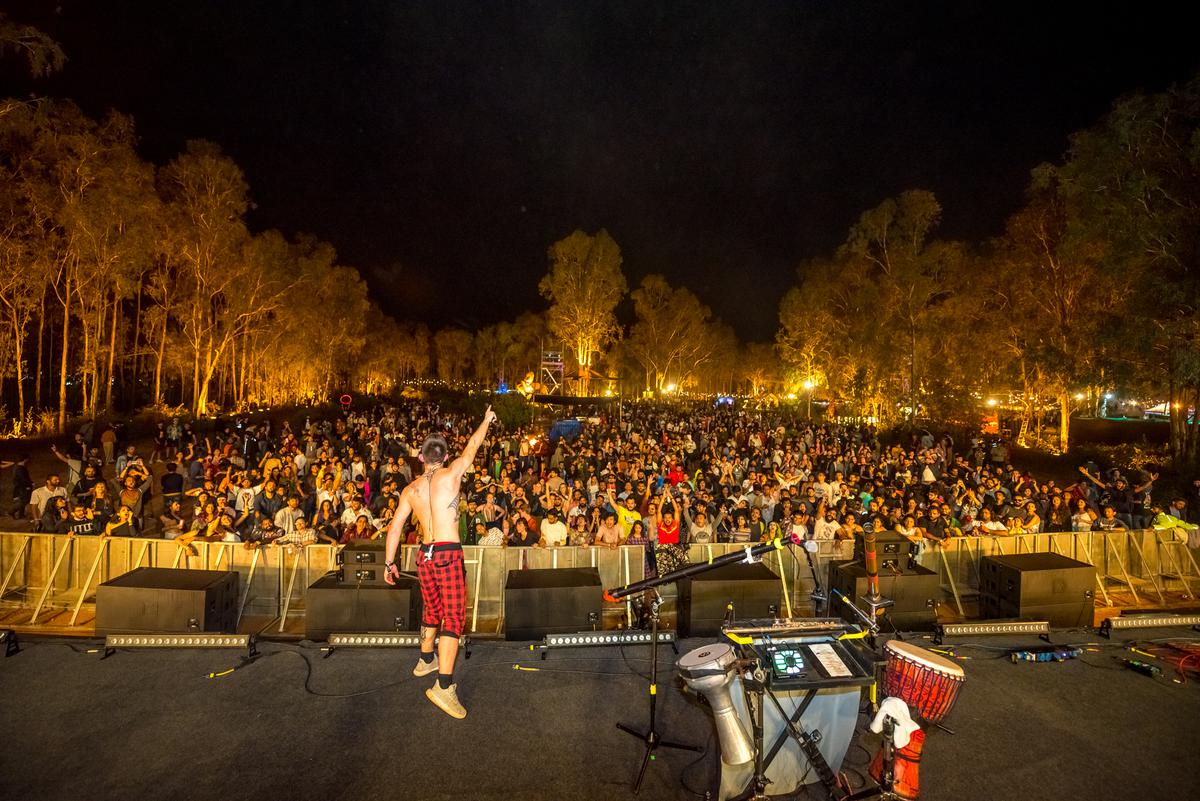
Audiance at Echoes of Earth Music Festival
Echoes of Earth Music Festival, to be organised at Bengaluru’s Embassy International Riding School on December 3 and 4, too is expecting high sales. The organisers have announced that more than 40 artists would be performing at the event. Roshan Netalkar, founder and festival director, says they expect to host over 15,000 visitors this year. “We are only hoping to scale upwards and have more people join in on our vision each year,” he adds.
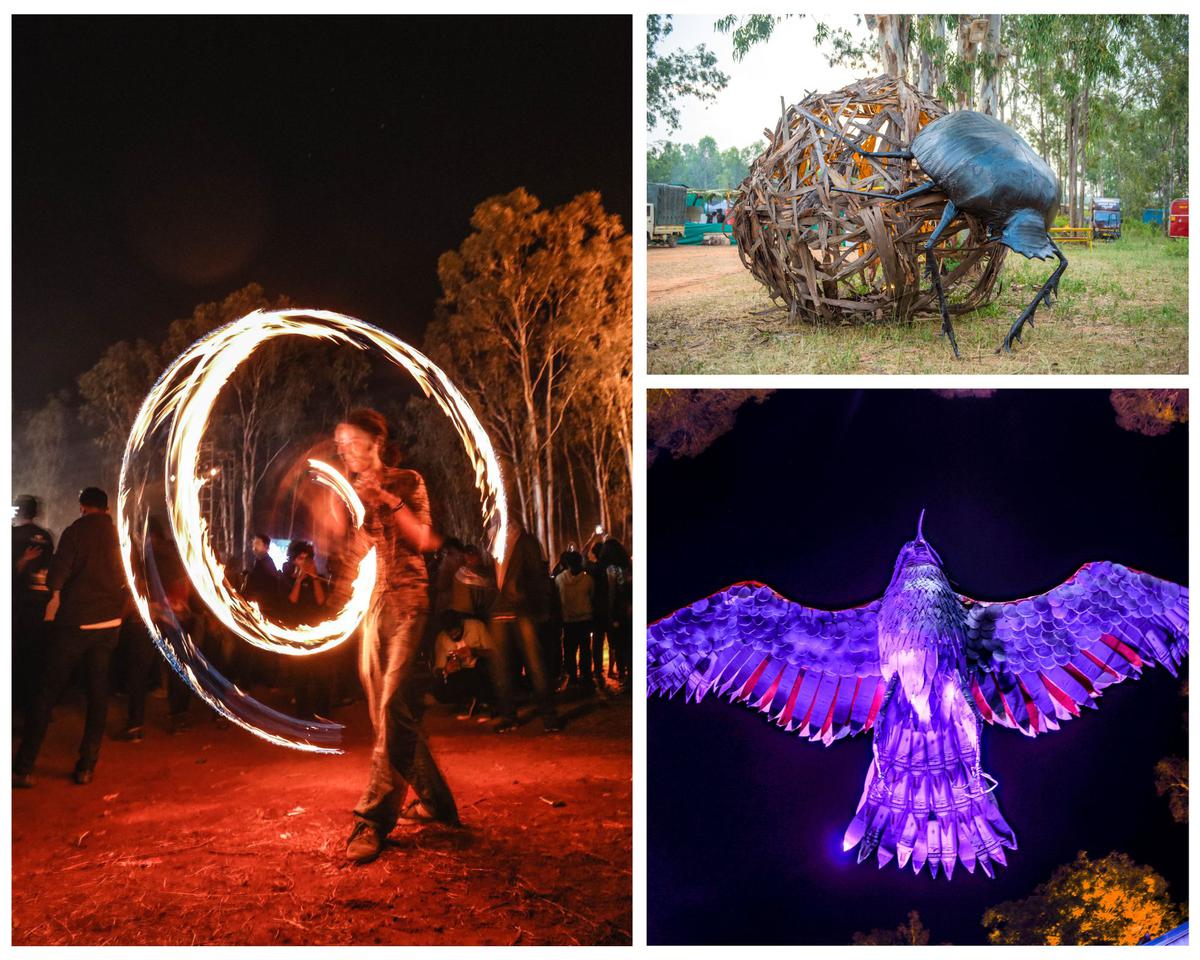
Sights from the previous editions of Echoes of Earth Music Festival
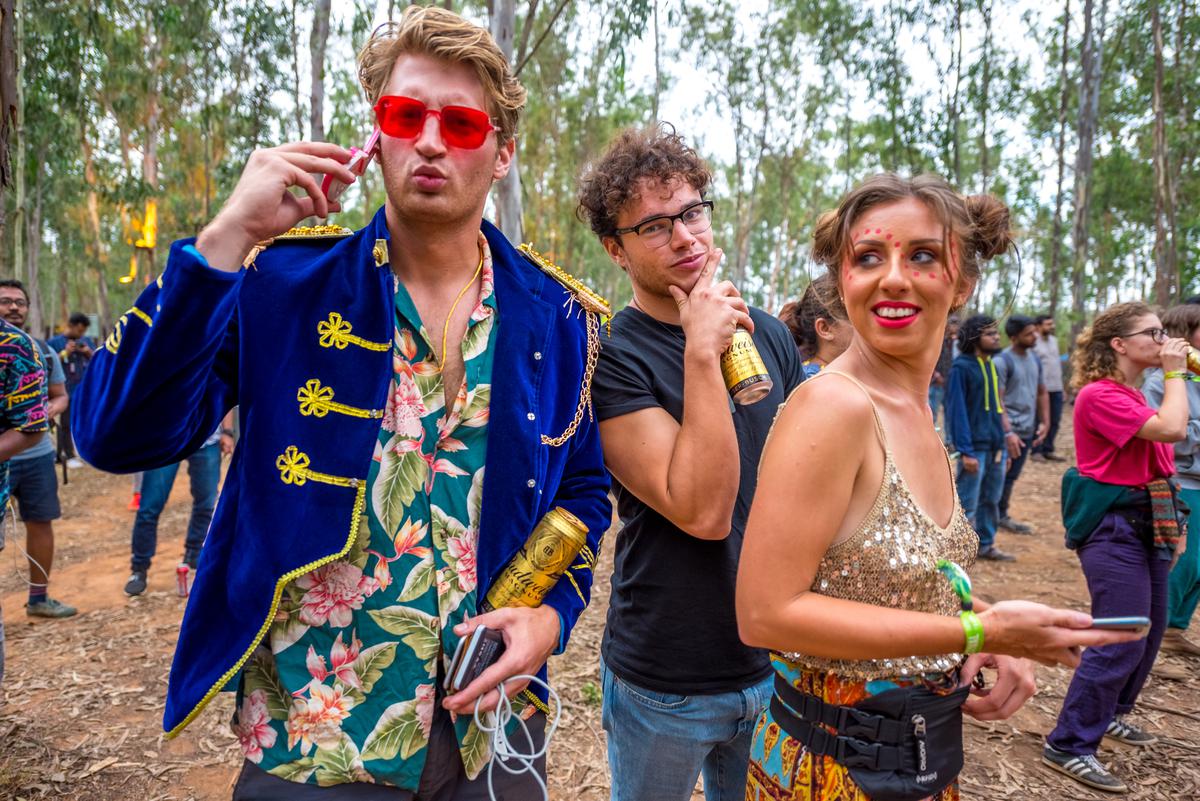
Echoes of Earth Music Festival
A focus on sustainability
When Ziro and Magnetic Fields started in the last decade, sustainability and community were the central theme. The trend has grown, with more festivals following green practices. “We don’t allow single-use plastic and have even changed the materials we work with and use to design the stages,” says Munbir from Magnetic Fields.
Mumbai-based Deepika Rathore, who attended Ziro this year, says, “The scenery was amazing and I loved that the organisers were trying to preserve it. As a festival-goer, I too felt like I was part of something bigger. When it comes to events in such ecologically sensitive places, my husband and I always prefer places which are responsible towards their surroundings.”
The need to be aware of environment also arises from appeals made within the music industry. “It’s something we are cognizant of, considering that our festival takes place in the desert and we have taken the advice and help of experts, whether it be a third-party auditor who assesses the environmental impact of the festival, to waste management and disposal experts, and educating our community and attendees about how they could help by carrying their own refillable bottles and disposing of cigarettes responsibly,” Munbir adds.
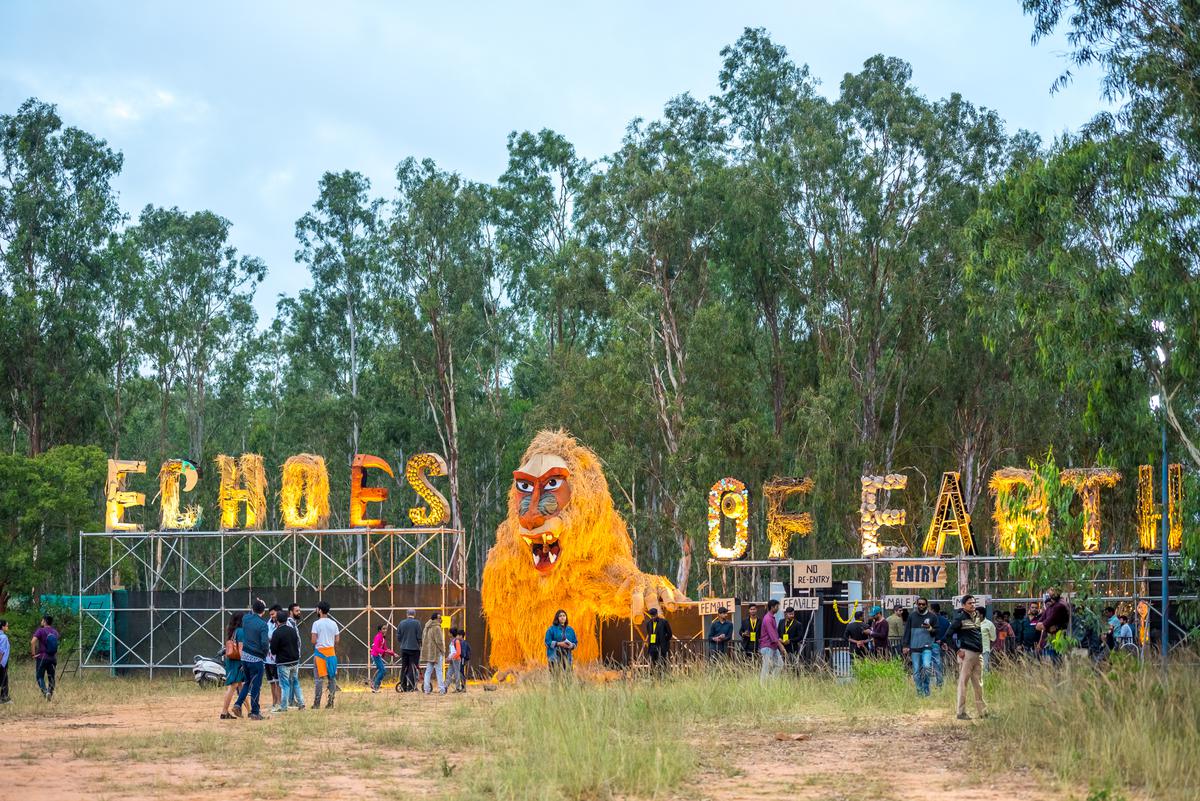
Echoes of Earth Music Festival
Echoes of Earth Music Festival is also taking the environment route. In fact, the organisers call the event India’s greenest music festival. “In my 20 years of experience in the events space, I have observed how large format events consume a lot of natural resources and generate waste. Through Echoes, I wanted to rewrite the narrative of celebrating responsibly,” adds Netalkar.
For a music festival in Shillong, going green meant additional expenses. “We mostly went for bamboo and the use of ready-made plastic material was kept to the minimum. Hence, our expenses more than doubled,” says Sahil Majaw. Sahil, who is 34, runs an event management group, Helping Young People Entertainment, which is behind Hills Festival Meghalya.
The festival managed to pull a crowd of 4,000 people on November 4 and 5, an impressive number given the fact that the event started in 2018 and did not take place in 2020 and 2021. It has grown exponentially, says Majaw. “We definitely see more excitement, especially with people from other states like Assam, Kolkata, Delhi and Mumbai. The former being the most,” he adds. Tickets of the festival, which included Bloodywood, F16s and Hanuman as part of their line-up, were priced upwards of ₹880.
Hills Festival Meghalya
The festival at Ziro, hosted by the local Apatani tribe, has been going beyond environment when it comes to community outreach. “We worked with the Apatani Women’s Association for our waste management during the festival,” says Guwahati-based Lubna Shaheen, one the founding members of the festival. “We reached out to several local schools, and their students came for storytelling sessions, and learnt to work with plastic waste and use it to make art. We also had Yania Narang, an Apatani elder, who did a workshop on how to make and play the aalu (flute made with paddy straw).”
The break
When the pandemic brought all shows to a halt, the promoters of Ziro worked on collaborations. “Just before the pandemic, we got a grant from British Council and Wales Arts International. We had planned an international exchange of artists with our partner festival. However, it was out of the question because of Covid. So this opened opportunities for us to work with technology and create new cultural and music connections despite being stuck in our houses. We are, in fact, delighted to have been pushed to come up with a series of projects,” says Lubana.
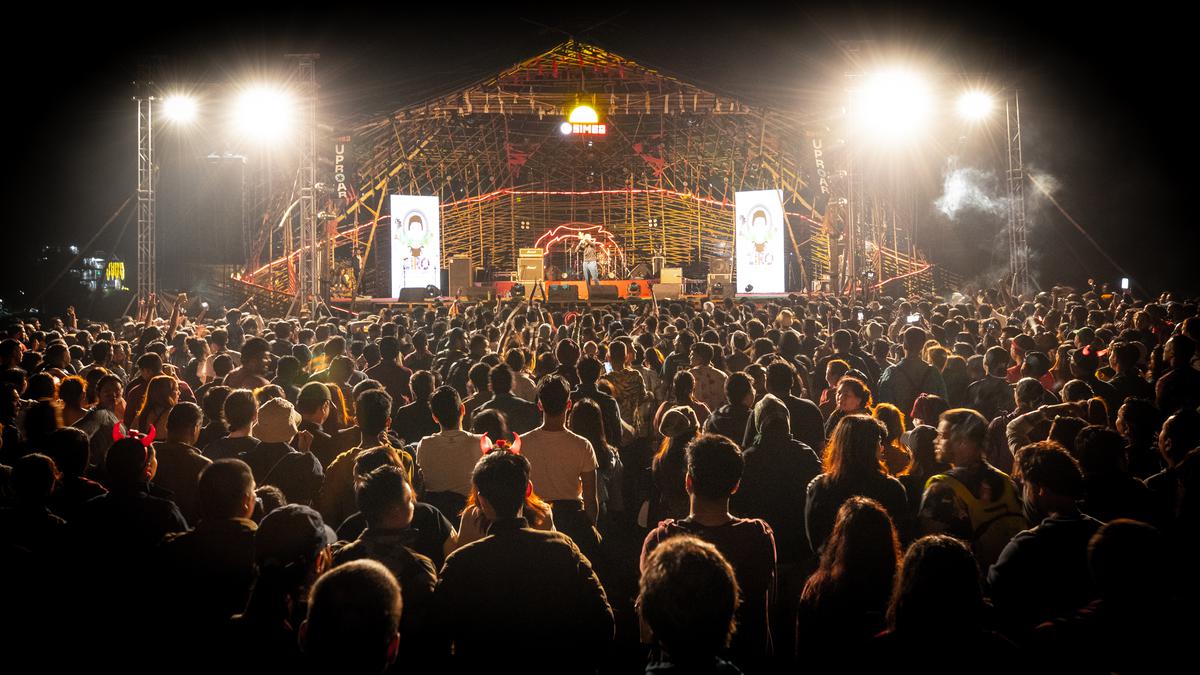
Ziro; Photo: Mohit Sharma
During the Covid break, Sunburn was among the festivals which went online. According to the festival spokesperson, the response was good. “However, nothing comes close to the live experience,” says the spokesperson.
When it comes to homegrown performers, promoters feel there has been an explosion of talent when compared to 2019. “We are excited by that,” says Munbir. He adds, “We try and make each Magnetic Fields edition refreshingly different within the ideas and scope of what Magnetic Fields stands for. Our focus has always been on pushing future-facing sounds and introducing ideas and acts that you may not find on other line-ups.”
This year, the festival has debut live sets by Sijya, Nate08, Jay Pei and Tyrell Dub Corp. It also features DJs and producers like Four Tet, Ben UFO, Pangaea and Pearson Sound.
These two are not the only reasons behind the resurgence of music festivals. It is also the sheer number of listeners. Lollapalooza was present in seven countries before it came to Mumbai. “Globally, India is the second largest market when it comes to audio streaming numbers for artists anywhere in the world, making it an extremely important and lucrative market for live entertainment and music,” says Hemrajani.
Karan from Sunburn sums up the mood of the market: “We are trying to make the experience bigger and better than ever before.”
Manasvi Sharma, a music producer who plans to attend Lollapalooza, says this will be the first big event he will be attending after three years. He says, “I can’t wait to see Imagine Dragons live. For me, these festivals are a celebration of being free. I will feel free after a long time.”





